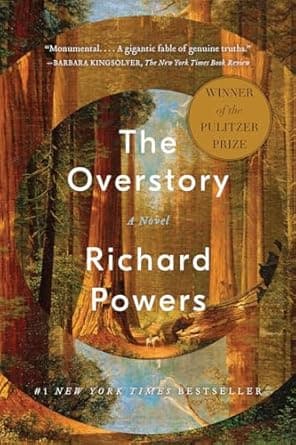
Book Stats
367
Upvotes
78
Downvotes
+289
Net Score
The Overstory
by Richard Powers
Description
An ambitious novel about trees and the people who fight to save them, weaving together multiple storylines to create an urgent environmental epic.
Nine Americans with seemingly nothing in common are brought together by their relationships with trees. An artist inherits a hundred-year-old chestnut tree, a soldier falls from the top of a giant redwood, a psychology professor develops a theory about forest intelligence, and an environmental activist risks everything to protect old-growth forests.
Powers creates a novel that is both scientifically informed and emotionally powerful, showing how trees communicate, cooperate, and support each other in ways that challenge traditional notions of intelligence and consciousness. The book presents forests not as collections of individual trees but as complex communities with their own forms of awareness and memory.
The novel's structure mirrors forest ecology, with individual storylines that gradually connect and influence each other like trees in a forest canopy. Powers suggests that human stories, like tree stories, are interconnected in ways we're only beginning to understand.
Each character represents a different relationship to the natural world: scientific study, artistic interpretation, spiritual connection, or activist commitment. As their stories converge, they're drawn into the fight to save the last remaining old-growth forests in the Pacific Northwest.
The novel's environmental message is urgent but never preachy—Powers lets the science and the characters' experiences speak for themselves. He shows how environmental destruction affects not only ecosystems but human communities, particularly those whose livelihoods depend on forest resources.
The book's treatment of time is particularly innovative. Powers moves between different temporal scales—from the brief span of human lives to the centuries-long life cycles of trees to the geological time scales of forest evolution. This perspective shift helps readers understand the environmental crisis in broader temporal context.
The Overstory won the Pulitzer Prize for Fiction and has been credited with changing many readers' relationships to the natural world. It demonstrates that literary fiction can address environmental themes without sacrificing character development or narrative complexity.